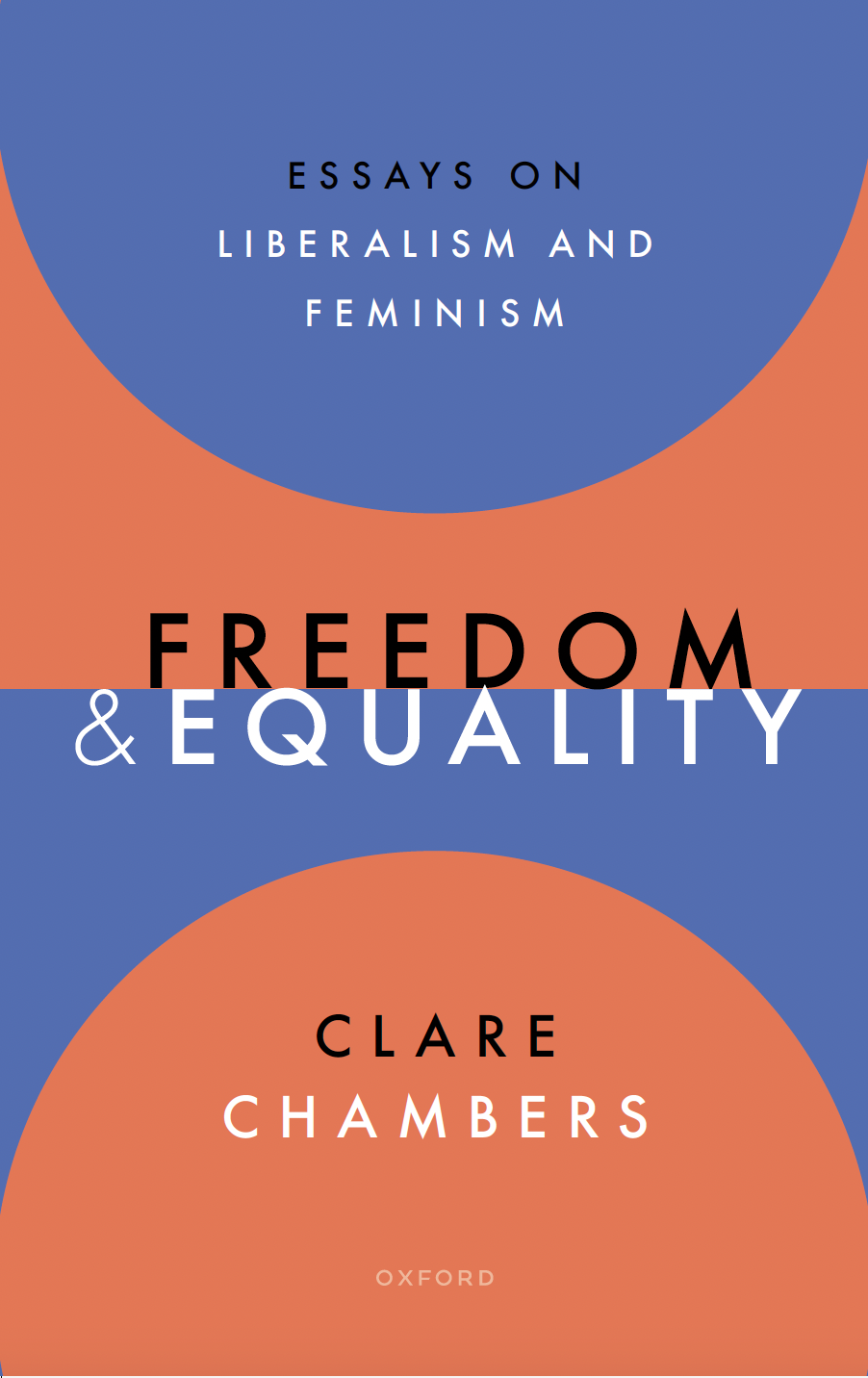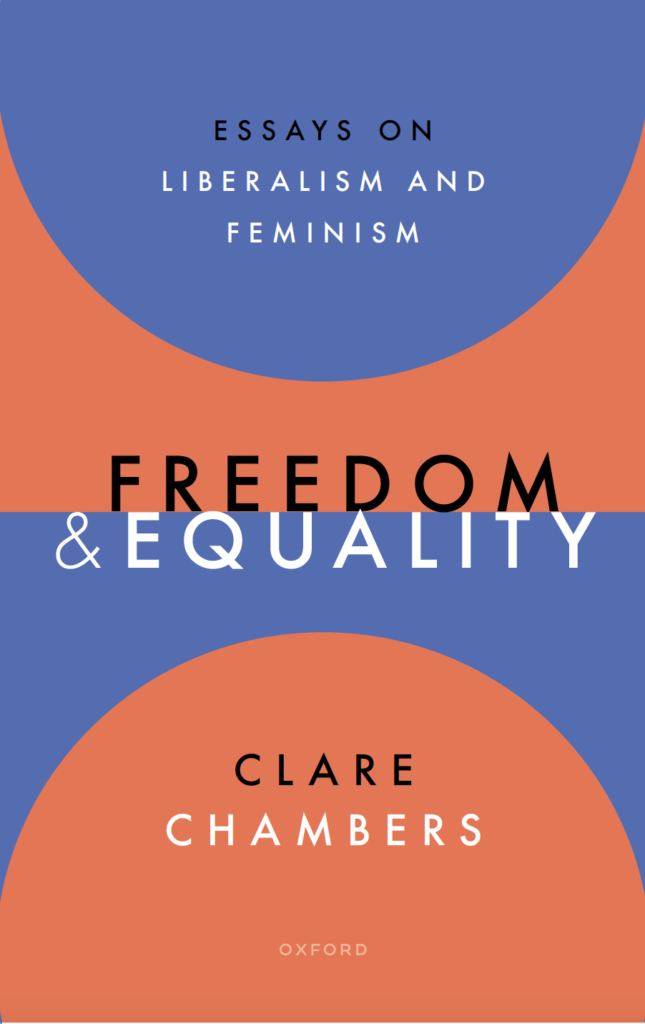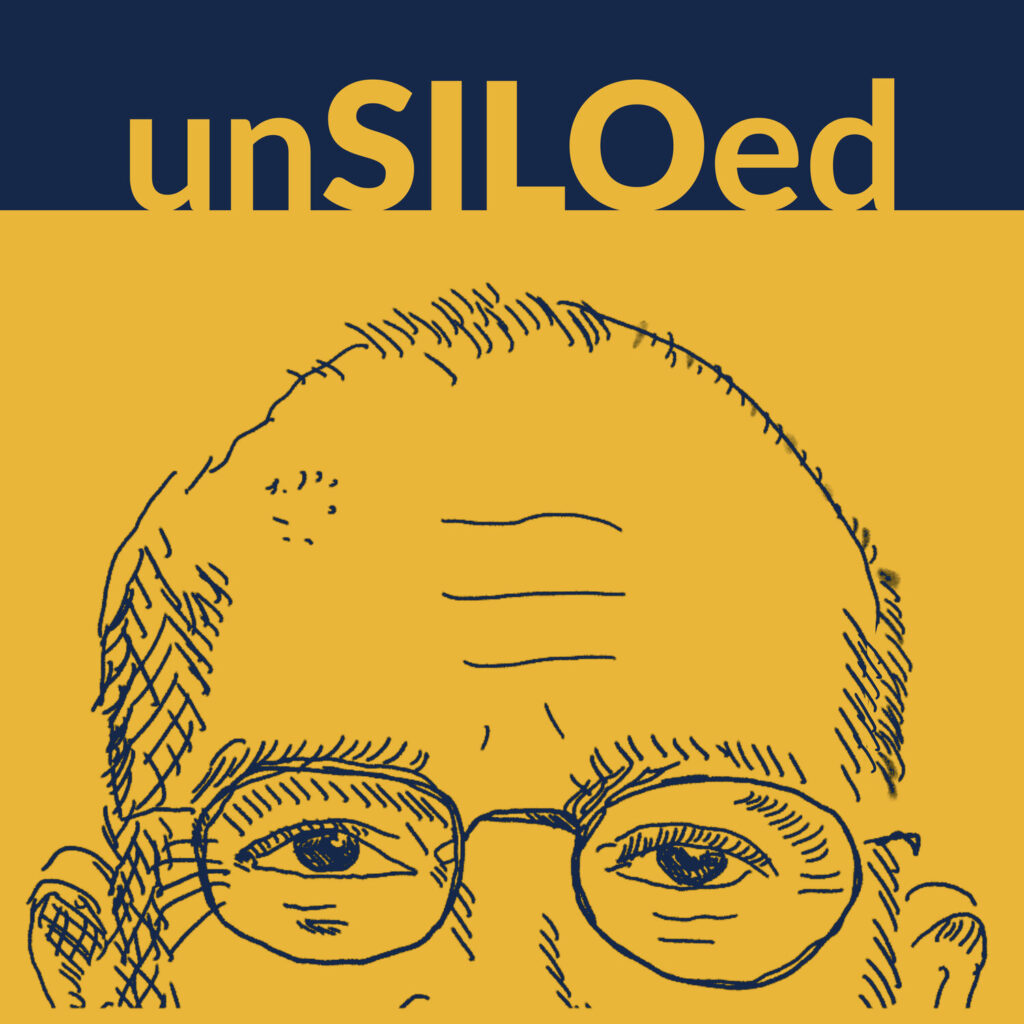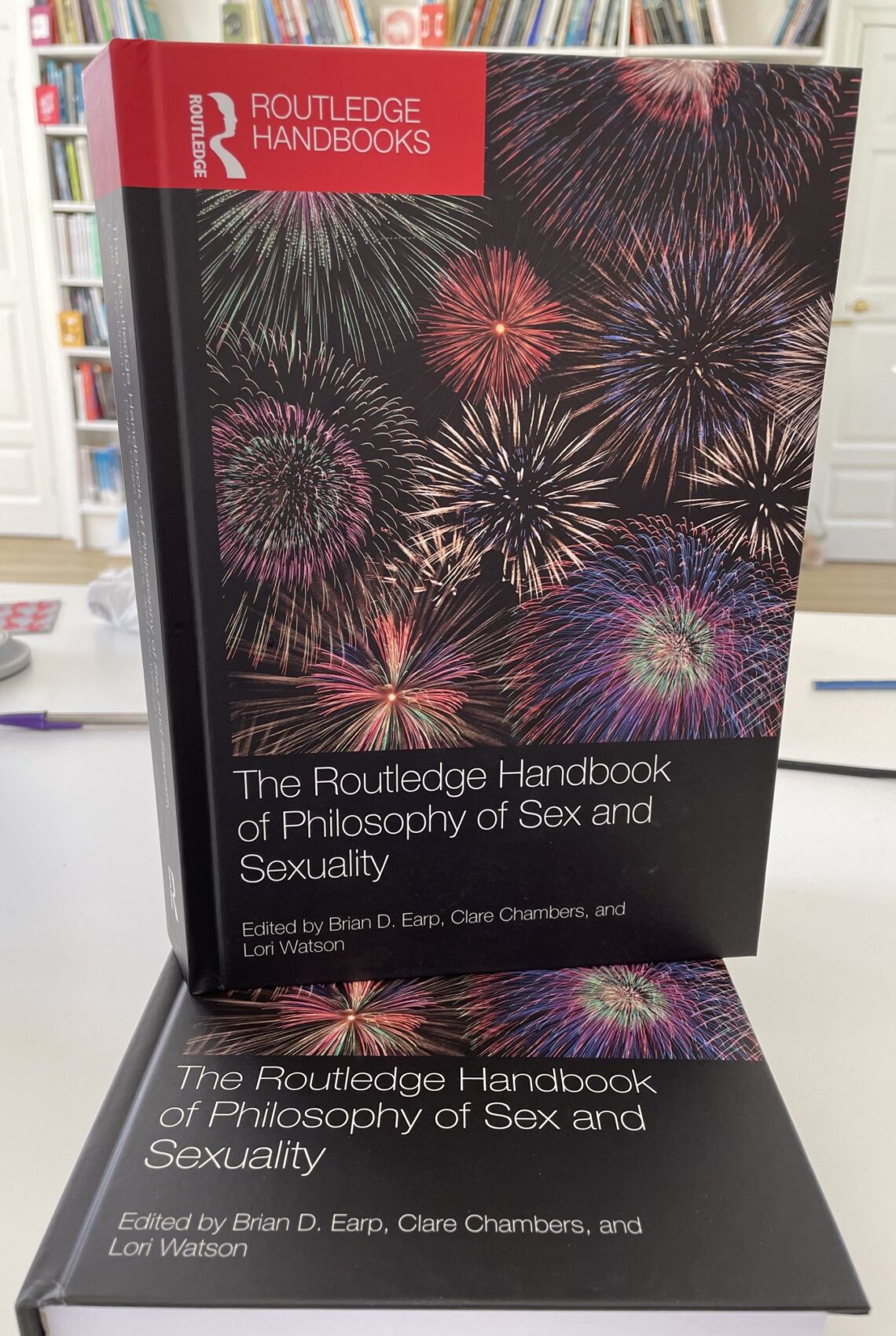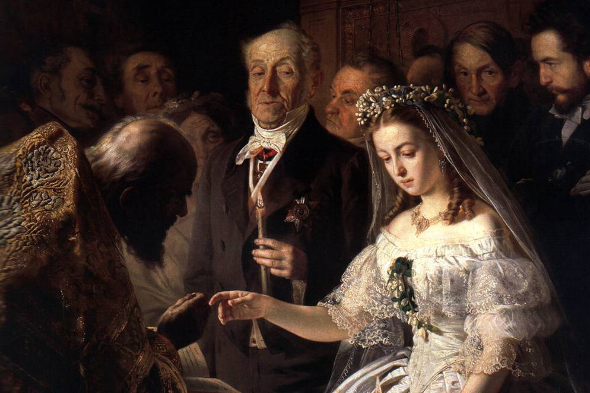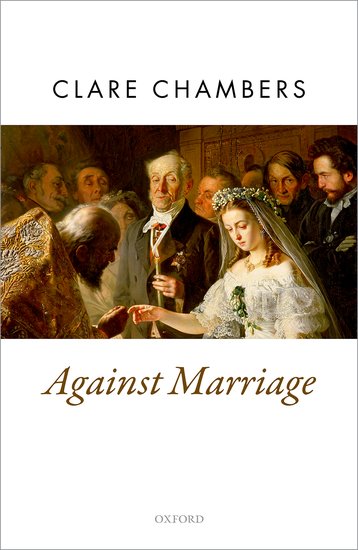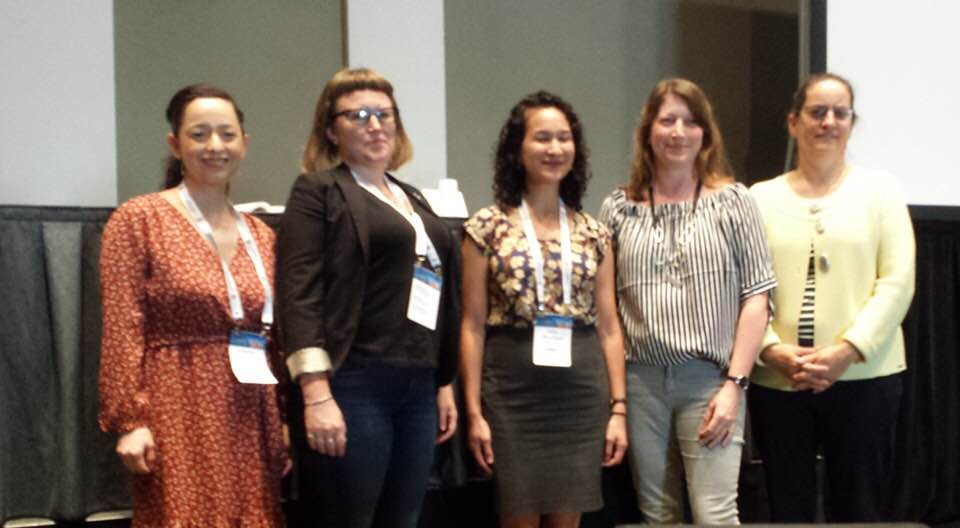all posts on marriage
- all posts on culture and religion, all posts on feminism, all posts on liberalism, all posts on marriage, all posts on social construction, Freedom & Equality
Freedom & Equality: Essays on Liberalism and Feminism
Should the state recognise gender? Can a liberal state discourage traditional family structures? Is women’s sport compatible with equality of opportunity? Should feminists defend women’s freedom to choose cosmetic surgery? Is genital cutting always wrong, or is it only wrong for girls?
Freedom & Equality: Essays on Liberalism and Feminism investigates the contours of feminist liberalism: a philosophical approach that is appealing but elusive. Its hallmark is a liberalism that prioritises equality and individual autonomy, while offering a rigorous critique of using individuals’ choices as the measure of justice. Liberalism without feminism prioritises individual choice, a strategy that has played a crucial role in the liberal defence of freedom against authoritarianism and conformity. However, as feminism shows, relying on individual choice is insufficient to render an outcome just, because people often choose things that harm or disadvantage themselves. From beauty norms to the gendered division of labour, from marriage to religion, women and men choose to arrange their lives in ways that perpetuate inequality. Often, these choices are made in response to social norms, including unjust, unequal, or harmful norms. It follows that relying on individual choice as a measure of justice actually leaves unjust social structures intact. Any defender of autonomy and equality must be prepared to criticise individuals’ choices while prioritising individual choosers.
The essays in this collection cover a wide range of issues fundamental to liberalism, to feminism, and to their intersection. They explore the foundational philosophical concepts of choice, equality of opportunity, ideology, and the state, and they engage directly with key political controversies, including women’s sport, the state recognition of gender, the regulation of cosmetic and cultural surgeries, and state action to secure equality in the family. Clare Chambers argues that feminist liberalism is both possible and necessary. It is possible because the two doctrines of feminism and liberalism are compatible, their fundamental values of freedom and equality aligned. But feminism is necessary because liberalism has shown that it is simply not up to the task of securing gender equality and women’s liberation alone.
Freedom & Equality will be published by Oxford University Press in 2024.
CONTENTS
Introduction: A Feminist Liberalism
PART I: FEMINISM & LIBERALISM
1: Feminism
2: Feminism on Liberalism
3: Respect, Religion, and Feminism: Political Liberalism as Feminist Liberalism?
PART II: THE FAMILY
4: ʻThe Family as a Basic Institutionʼ: A Feminist Analysis of the Basic Structure as Subject
5: Liberalism, Feminism, and the Gendered Division of Labour
6: The Marriage-Free State
PART III: THE LIMITS OF LIBERALISM
7: Should the Liberal State Recognise Gender?
8: Reasonable Disagreement and the Neutralist Dilemma: Abortion and Circumcision in Matthew Kramer’s Liberalism with Excellence
PART IV: EQUALITY OF OPPORTUNITY
9: Each Outcome Is Another Opportunity: Problems with the Moment of Equal Opportunity
10: Equality of Opportunity and Three Justifications for Women’s Sport: Fair Competition, Anti-Sexism, and Identity
PART V: CHOICE
11: Choice and Female Genital Cosmetic Surgery
12: Judging Women: 25 Years Further Toward a Feminist Theory of the State
13: Ideology and Normativity - Against Marriage, all posts on marriage, all posts on social construction, all posts on the body and beauty, Intact, listen, Sex, Culture, and Justice
Interview on UnSILOed podcast
It was a pleasure to discuss Intact, Against Marriage, and themes from Sex, Culture, and Justice with Greg LaBlanc for his UnSILOed podcast. You can listen to the whole episode here.
There’s a lot of philosophy books out there that are tough to read but this one (INTACT), I think, is just an example of fantastic philosophical writing. It’s profound, but it’s also a page-turner. I really enjoyed it.
- all posts on feminism, all posts on liberalism, all posts on marriage, Routledge Handbook of Philosophy of Sex and Sexuality
Routledge Handbook of Philosophy of Sex and Sexuality
Edited with Brian D. Earp and Lori Watson, and published by Routledge in 2022. You can buy the book here and read it in Routledge Handbooks online here.
This Handbook covers the most urgent, controversial, and important topics in the philosophy of sex. It is both philosophically rigorous and yet accessible to specialists and non-specialists, covering ethics, political philosophy, metaphysics, the philosophy of science, and the philosophy of language, and featuring interactions with neighboring disciplines such as psychology, bioethics, sociology, and anthropology.
The volume’s 40 chapters are written by an international team of both respected senior researchers and essential emerging scholars. The broad scope of coverage, depth in insight and research, and accessibility in language make The Routledge Handbook of Philosophy of Sex and Sexuality a comprehensive introduction for newcomers to the subject as well as an invaluable reference work for advanced students and researchers in the field.
Table of Contents
IntroductionClare Chambers, Brian D. Earp, Lori Watson
Part I: What is Sex? Is Sex Good?
- What is a Sexual Act?
Kristina Gupta - Eroticisms in Cross-Cultural Perspective
Sara Johnsdotter - The Value of Sex
Sam Shpall - Is There a Right to Sex?
John Danaher - The Concept and Significance of Virginity
Neil McArthur
Part II: Sexual Orientations
- What is a Sexual Orientation?
Lisa M. Diamond - Sexual Orientation, Sexual Desires, and Choice
E. Diáz-León - Queer and Straight
Matthew Andler - Asexuality
A.W. Eaton and Bailey Szustak - Feminist Heterosexuality
Christie Hartley - Heterosexual Male Sexuality: A Positive Vision
Shaun Miller - Radical Feminist Analysis of Heterosexuality
Jessica Joy Cameron - Lesbian Feminism
Finn Mackay
Part III: Sexual Autonomy and Consent
- Flirting
Lucy McDonald - Sex and Consent
Karamvir Chadha - Beyond Consent
Susan J. Brison - Sexual Autonomy, Consent, and Reproductive Control
Mianna Lotz - Sexual Practices and Relationships Among Young People
Kate Ott and Lauren D. Sawyer - Sex and Disability
Tom Shakespeare - Sexual Consent, Aging, and Dementia
Andria Bianchi
Part IV: Regulating Sexual Relationships
- Monogamy: Government Policy
Stephen Macedo and Peter de Marneffe - Plural Marriage and Equality
Lori Watson - Sex, Marriage, and Race
Robin Zheng - The Ethics of Relationship Anarchy
Ole Martin Moen and Alexander Sørlie
Part V: Pathologizing Sex and Sexuality
- The Eugenic Logic of Sexual Normality
Tara M. Dankel - “Disordering” Sex Through Medicine
Katarzyna Grunt-Mejer - Religion and Sexual Shame
Krista K. Thomason - Homophobia and Conversion ‘Therapies’
Sean Aas and Candice Delmas
Part VI: Contested Desires
- The Ethics and Politics of Sexual Preference
Gulzaar Barn - BDSM
Manon Garcia - Critiquing Consensual Adult Incest
Natasha McKeever - Pedophilia
Agustín Malón
Part VII: Objectification and Commercialized Sex
- Sexual Objectification
Patricia Mariño - The Civil-Rights Approach to Pornography
John Stoltenberg - Pornography and the “Sex Wars”
Mari Mikkola - The Case for Decriminalizing Sex Work
Jessica Flanigan - An Equality Approach to Prostitution
Lori Watson
Part VIII: Technology and the Future of Sex
- The Ethics of Matching: Hookup Apps and Online Dating
Michal Klincewicz, Lily E. Frank, and Emma A. Jane - The Ethics of Humanoid Sex Robots
Sven Nyholm - Sex and Emergent Technologies
Robbie Arrell
About the editors
Brian D. Earp is a philosopher, cognitive scientist, and bioethicist with interests in gender, sex, sexuality, and related topics. Brian is Associate Director of the Yale-Hastings Program in Ethics and Health Policy at Yale University and The Hastings Center, and Senior Research Fellow in Moral Psychology at the Uehiro Centre for Practical Ethics at the University of Oxford. With Julian Savulescu, Brian is co-author of Love Drugs: The Chemical Future of Relationships (Stanford UP, 2020).Clare Chambers is Professor of Political Philosophy at the University of Cambridge. She is the author of Intact: A Defence of the Unmodified Body (Allen Lane, 2022), Against Marriage: An Egalitarian Defence of the Marriage-Free State (Oxford University Press, 2017), and Sex, Culture, and Justice: The Limits of Choice (Penn State University Press, 2008).
Lori Watson is Professor of Philosophy at Washington University in Saint Louis. She is the co-author, with Patrick Hurley, of A Concise Introduction to Logic, 13th ed. (Cengage, 2016); with Christie Hartley, of Equal Citizenship and Public Reason: A Feminist Political Liberalism (Oxford UP, 2018); with Andrew Altman, of Debating Pornography (Oxford University Press, 2019); and, with Jessica Flanigan, of Debating Sex Work (Oxford University Press, 2019).
- What is a Sexual Act?
-
UK Parliament Select Committee inquiry into the Rights of Cohabiting Partners
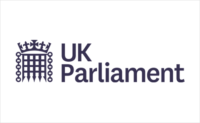
I submitted written evidence to the UK Parliament’s Women & Equalities Select Committee Inquiry into The Rights of Cohabiting Partners. You can read all the evidence submitted to the Committee here.
-
Against Marriage on the Counterintuitive Podcast
-
Equal Civil Partnerships Campaign

I was delighted and honoured to be invited to the party to celebrate the success of the Equal Civil Partnerships Campaign, which resulted in the introduction of different-sex civil partnerships in England and Wales. You can read more about the campaign and its wonderful people here.
- Against Marriage, all posts on feminism, all posts on liberalism, all posts on marriage, feminism, liberalism, multiculturalism and religion, publications on marriage
Against Marriage: An Egalitarian Defence of the Marriage-Free State
Against Marriage was published by Oxford University Press in 2017, with a paperback in 2019. Read the book on Oxford Scholarship Online here.Winner of the APSA David Easton Award 2018.
Synopsis
Against Marriage is a radical argument for the abolition of state-recognised marriage. Clare Chambers argues that state-recognised marriage violates both equality and liberty, even when expanded to include same-sex couples. Instead Chambers proposes the marriage-free state: an egalitarian state in which religious or secular marriages are permitted but have no legal status.
Part I makes the case against marriage. Chambers investigates the critique of marriage that has developed within feminist and liberal theory. Feminists have long argued that marriage is a violation of equality since it is both sexist and heterosexist. Chambers endorses the feminist view and argues, in contrast to recent egalitarian pro-marriage movements, that same-sex marriage is not enough to make marriage equal. Chambers argues that state-recognised marriage is also problematic for liberalism, particularly political liberalism, since it imposes a controversial, hierarchical conception of the family that excludes many adults and children.
Part II sets out the case for the marriage-free state. Chambers critically assesses recent theories that attempt to make marriage egalitarian, either by replacing it with relationship contracts or by replacing it with alternative statuses such as civil union. She then sets out a new model for the legal regulation of personal relationships. In the marriage-free state regulation is based on relationship practices not relationship status, and these practices are regulated separately rather than as a bundle. The marriage-free state thus employs piecemeal, practice-based regulation. Finally, Chambers considers how the marriage-free state should respond to unequal religious marriage. The result is an inspiring egalitarian approach that fits the diversity of real relationships.
Reviews
“Clare Chambers has produced what will surely be for years to come the definitive argument for the abolitionist view of marriage. … [T]his is in my opinion a superb book. It is prodigiously scholarly, but at the same time wonderfully clear and accessible. The arguments are provocative and challenging throughout. The literature on this vitally important topic urgently needed a book-length defense of the abolitionist position. It is hard to imagine a book performing this necessary role better than Chambers’s Against Marriage.”
Ralph Wedgwood in Ethics
Against Marriage is “political philosophy at its most practical and readable.”
Andrew Harrop, General Secretary of the Fabian Society, in Fabian Review
“This is a distinct and important contribution to an increasingly crowded field of liberal political philosophy on marriage and the state and, perhaps most interestingly, to our understanding of the liberal project broadly. … Where other liberals seek more vigorously to balance competing demands of freedom and equality, or emphasize freedom, Chambers hews rigorously to an egalitarian position. You won’t find another book that does this so effectively or by way of such productive engagement with existing scholarship. Laying out the egalitarian case in such clear and compelling terms, Chambers highlights the challenges it presents to the liberal side of her liberal feminist equation. In so doing, Against Marriage leaves us wondering just how tenable the liberal feminist project is. … Chambers leads us to these questions by bringing us to the edge of the liberal feminist frontier. This alone would make Against Marriage a distinct and important contribution. But, of course, Chambers does more. She offers a compelling vision of why and how to move beyond marriage and points us in the direction of work that needs to be done. All with the grace and graciousness of an analytical philosopher running at full throttle.”
Tamara Metz in Political Theory
“Against Marriage makes an important contribution to the debate over the future of marriage within liberalism. It is clear and cogently argued and a pleasure to read. One of its virtues is its breadth; it makes arguments which address a range of liberal and feminist views and should be accessible to non-specialists. At the same time, it advances the leading edge of the specialist debate in provocative and intriguing ways.”
Elizabeth Brake in Mind
“Clare Chambers provides a clear, lucid and timely argument against state-recognized marriage based on the liberal principles of liberty and equality. … Throughout, she is masterful at anticipating and responding carefully to potential objections to her arguments and proposals. …. And her responses to those who might disagree with her proposals reveal a two-fold carefulness: as a philosopher, she is thoughtful, deliberate, precise, and meticulous; as a feminist, she is attentive, concerned, and compassionate — considering not only the philosophical justifications for her proposals but also their practical fall out for women and other vulnerable populations. … I highly recommend Chambers’ book as an important scholarly and pedagogical resource. It is beautifully crafted and makes an important contribution to the literature in liberal political theory and, more specifically, to the philosophical literature on marriage and family. … It was my distinct pleasure to read this book and be provoked by its arguments into a better understanding of both liberalism’s promise and its limitations with regard to its support of diverse forms of relationship.”
Shelley M. Park in Notre Dame Philosophical Reviews
“Chambers’ Against Marriage is a wonderful addition to a growing literature demanding that we think seriously about the institution of marriage and how it may have to be altered to meet the demands of justice and equity.”
Robert Scott Stewart in Metapsychology Online Reviews
-
Review of Against Marriage in The Philosophical Review
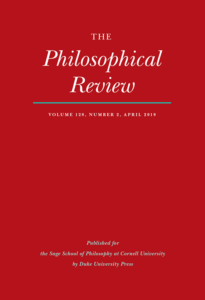
Laurie Shrage reviews Against Marriage.
“I agree with Chambers that state-recognized marriage retains patriarchal residues and is ultimately an inegalitarian and underinclusive way to regulate intimate partnerships and family units. I also believe that it is possible, in principle, to devise default directives for regulating different kinds of intimate relationships fairly and justly. However, the devil really is in the details here. Chambers has provided the moral and political justification, as well as a plausible mechanism, for a more egalitarian approach to family law and policy, and now it is incumbent on those who agree with her to develop the fair and just default rules that will take the place of state-recognized marriage.”
Read the whole review here.
-
“Clare Chambers, filósofa” in El País

The Spanish national daily newspaper El País featured an interview with me on 22 September 2019.
Filósofa. Es una feminista a la que le preocupa que las mujeres otorguen tanta importancia a su aspecto. Profesora en la Universidad de Cambridge, pone ahora el foco en la institución del matrimonio.
You can read the article here.
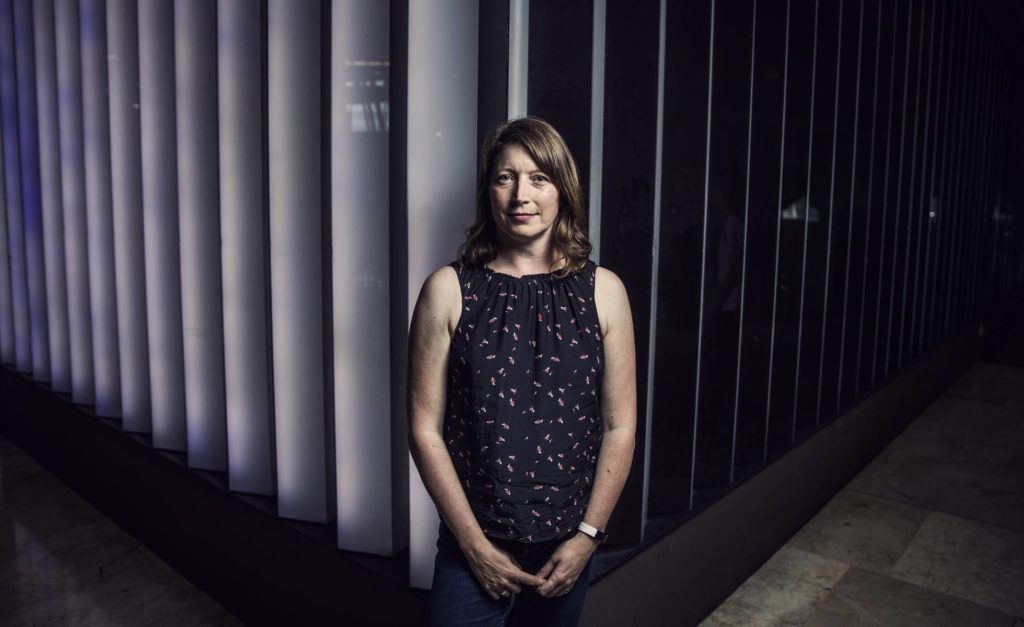
-
Talking Politics Guide to Marriage
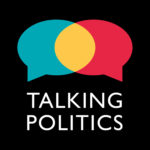
I recorded a special edition of the podcast Talking Politics discussing the ideas and proposals in Against Marriage. Listen to me talking with host David Runciman here.
-
Against Marriage and more at Hay Festival Segovia

I’ll be speaking about Against Marriage and other social conventions at the Hay Festival Segovia in Spain, the twin of the Hay-on-Wye literary festival run in conjunction with the British Council.
Clare Chambers, Reader in Political Philosophy at the University of Cambridge, is the author of Against Marriage: An Egalitarian Defence of the Marriage-free State; Sex, Culture and Justice: The Limits of Choice; Teach Yourself Political Philosophy: A Complete Introduction; and numerous articles on feminist and liberal political philosophy. She is currently carrying out research for her latest project, entitled Intact: The Unmodified Body. During her visit to Segovia she will speak with Ludovic Assémat, Director of Arts at the British Council, about the social conventions by which we live, within the framework of the British Council’s It’s Time to Talk programme. Simultaneous translation from English to Spanish
Read more and book tickets here.
-
Marriage in the New Statesman

What’s in a name? As it turns out, rather a lot. I explore the significance of the name “marriage” and the difference between a marriage license and a marriage certificate in an article published in Agora, the New Statesman’s philosophy column, on 2 August 2019. You can read the article here.
-
Discussing marriage on the Public Intellectual podcast
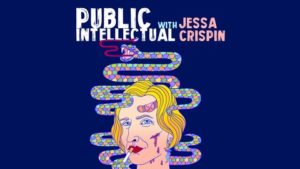
I was interviewed on marriage by Jessa Crispin for her podcast The Public Intellectual. You can listen to the interview here.
-
Beyond Marriage: Philosophy, Politics, Law
I am the convenor of this international and interdisciplinary conference held in Cambridge in May 2019.
There have been significant changes to the institution of marriage in recent years, with many countries introducing same-sex marriage, civil partnerships, and other forms of non-traditional union. For some, marriage is a central institution that must be protected, for others it is inevitably unjust and should be abolished.
This conference will bring together academics and practitioners from philosophy, politics, and law to debate what lies beyond marriage. The programme includes:
Dr Rebecca Steinfeld, claimant in Steinfeld and Keidan v. Secretary of State, “The Equal Civil Partnerships Campaign”
Tim Loughton MP, “Equal Civil Partnerships in the House of Commons”
Andrew Harrop, General Secretary, Fabian Society, “Marriage and the Left”
Jo Miles, Law, University of Cambridge, “Against Civil Partnership”
Prof Robert Wintemute, Law, King’s College London, “Equal Choices for All Couples: From Same-Sex Civil Partnership to Equal Marriage to Steinfeld & Keidan”.
Prof Lori Watson, Philosophy, San Diego University, “Polygamy and Equality”
Dr Samia Bano, Law, SOAS, “Muslim Marriage in the UK”
Dr Clare Chambers, Philosophy, University of Cambridge, “The Marriage-Free State”
Prof Elizabeth Brake, Philosophy, Arizona State University, “Minimal Marriage”
Chairs:
Dr Jude Browne, Centre for Gender Studies, University of Cambridge
Prof Ralph Wedgwood, Philosophy, University of Southern California
Dr Findlay Stark, Law, University of Cambridge
Dr Tom Dougherty, Philosophy, University of CambridgeYou can read more about the conference here.
-
Against Marriage reviewed in Mind
“
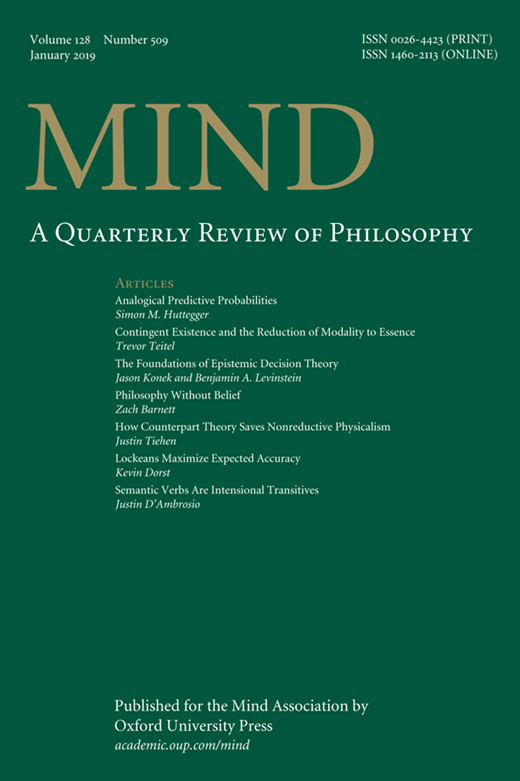
Elizabeth Brake, author of the excellent book Minimizing Marriage, has reviewed Against Marriage in Mind (January 2019). You can read the whole review here. Here’s an excerpt:
“Against Marriage makes an important contribution to the debate over the future of marriage within liberalism. It is clear and cogently argued and a pleasure to read. One of its virtues is its breadth; it makes arguments which address a range of liberal and feminist views and should be accessible to non-specialists. At the same time, it advances the leading edge of the specialist debate in provocative and intriguing ways.”
-
Against Marriage reviewed in Ethics
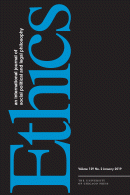 I’m delighted by Ralph Wedgwood’s review of Against Marriage in Ethics. He makes some pertinent criticisms of the argument of the book, but he also writes:
I’m delighted by Ralph Wedgwood’s review of Against Marriage in Ethics. He makes some pertinent criticisms of the argument of the book, but he also writes:“Clare Chambers has produced what will surely be for years to come the definitive argument for the abolitionist view of marriage. … [T]his is in my opinion a superb book. It is prodigiously scholarly, but at the same time wonderfully clear and accessible. The arguments are provocative and challenging throughout. The literature on this vitally important topic urgently needed a book-length defense of the abolitionist position. It is hard to imagine a book performing this necessary role better than Chambers’s Against Marriage.”
You can read the full review here.
-
Against Marriage at BBC Cambridgeshire
I was interviewed live on BBC Radio Cambridgeshire’s Lunchtime Live Show. Jeremy Sallis talked to me about Against Marriage and my lecture for the Cambridge Festival of Ideas.
-
Against Marriage at Bigg Books
 I’ll be talking on Against Marriage in the Bigg Books speaker series in Newcastle-Upon-Tyne on 20 November 2018. You can find more details here.
I’ll be talking on Against Marriage in the Bigg Books speaker series in Newcastle-Upon-Tyne on 20 November 2018. You can find more details here.Clare Chambers is Reader in Political Philosophy at University of Cambridge. She is a political philosopher specializing in feminist philosophy, contemporary liberalism, theories of social justice, and social construction. She will argue for the abolition of state-recognised marriage on the grounds that it violates both equality and liberty, even when expanded to include same-sex couples. Instead she will defend the idea of a the marriage-free state: an egalitarian state in which religious or secular marriages are permitted but have no legal status.
Clare Chambers’s award-winning book Against Marriage: An Egalitarian Defense of the Marriage-Free State was published last year by Oxford University Press (https://global.oup.com/academic/product/against-marriage-9780198744009)
Venue: Lit and Phil, 23 Westgate Road, Newcastle-upon-Tyne
-
Against Marriage at Festival of Ideas
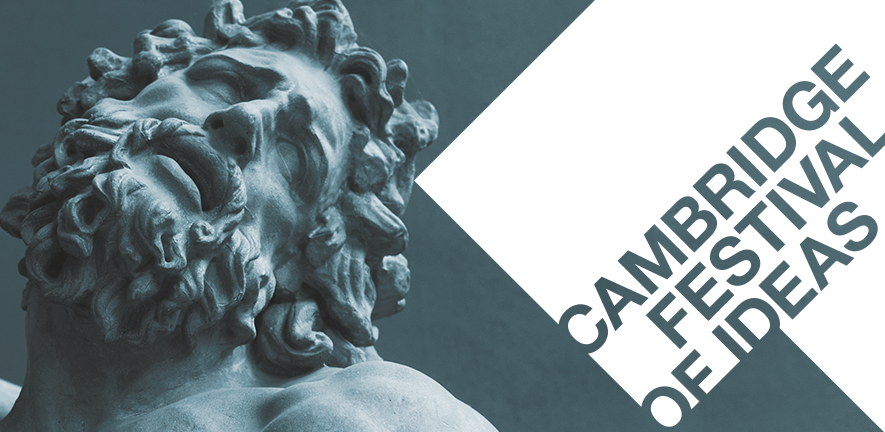 I talked about Against Marriage at the Cambridge Festival of Ideas on Monday 15th October 2018, in the Frankopan Hall of Jesus College, Cambridge.
I talked about Against Marriage at the Cambridge Festival of Ideas on Monday 15th October 2018, in the Frankopan Hall of Jesus College, Cambridge.Many states have recently expanded their definition of marriage to allow marriage between same-sex couples: a welcome move towards equality, but does this go far enough? Philosopher Clare Chambers argues for a more extreme position: that the state should not recognise marriage at all. State recognition of marriage, she will argue, is a violation of both equality and liberty – no matter how marriage is redefined.
Tickets were sold out and so the talk was live-streamed. You can watch it on youtube here:
-
David Easton Award presented at APSA 2018
The 2018 David Easton Award was presented to me for Against Marriage: An Egalitarian Defence of the Marriage-Free State at the APSA Annual Meeting in Boston.
The Award is given “for a book that broadens the horizons of contemporary political science by engaging issues of philosophical significance in political life through any of a variety of approaches in the social sciences and humanities.” You can see previous winners of the Award here.
-
OUP Philosophy Festival reading list
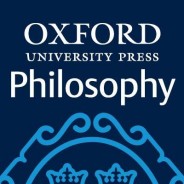 Two of my articles feature in the OUP Philosophy Festival 2017 reading list, making them available for free download.
Two of my articles feature in the OUP Philosophy Festival 2017 reading list, making them available for free download.You can find and read “The Marriage-Free State” and “Ideology and Normativity”, as well as many other excellent articles by other philosophers, here.
-
OUP Women in Philosophy reading list

Against Marriage features in the Oxford University Press Women in Philosophy reading list.
“This March, in recognition of Women’s History Month, the OUP Philosophy team will be celebrating Women in Philosophy. The philosophy discipline has long been perceived as male-dominated, so we want to recognize some of the incredible female philosophers from the past including Simone de Beauvoir, Mary Wollstonecraft, and Hannah Arendt, plus female philosophers doing great things in 2018 like Martha Nussbaum, Clare Chambers, and Kate Manne.”
You can see the whole reading list here.
-
Quoted on marriage in The Guardian
Rose Hackman quotes me in a long-form piece on marriage in The Guardian. You can read the whole article here.
” “Married men gained rights over women’s bodies, property and children,” confirms Clare Chambers, a lecturer in philosophy at the University of Cambridge who wrote a book arguing for an end to state-recognized marriage. “Traditionally [marriage] has maintained legal gender inequality, and it has done so to the benefit of men.”
“Chambers concedes that many formal inequalities tied to marriage have been denounced and revoked. Marital rape was outlawed in the UK in 1991 and in the US in 1993 – hard to believe there was ever an exemption – and same-sex marriage was legalized in 2014 and 2015 respectively.”
-
Against Marriage wins APSA’s David Easton Award
 I am delighted and honoured to learn that Against Marriage: An Egalitarian Defence of the Marriage-Free State has won the 2018 David Easton Award of the American Political Science Association (APSA). APSA say: “The David Easton Award is given for a book that broadens the horizons of contemporary political science by engaging issues of philosophical significance in political life through any of a variety of approaches in the social sciences and humanities.”
I am delighted and honoured to learn that Against Marriage: An Egalitarian Defence of the Marriage-Free State has won the 2018 David Easton Award of the American Political Science Association (APSA). APSA say: “The David Easton Award is given for a book that broadens the horizons of contemporary political science by engaging issues of philosophical significance in political life through any of a variety of approaches in the social sciences and humanities.”The citation for the Award is as follows:
“Clare Chambers’ Against Marriage: An Egalitarian Defence of the Marriage-Free State and Barbara Arneil’s Domestic Colonies: The Turn Inward to Colony won recognition from our committee because these two books exhibit logical rigor, clarity of structure, lucidity of thought, and crisp prose. Just as important, they tackle politically significant problems: in the first case, the liberal democratic state’s sanctification of one form of intimate social relations at the expense of others, and in the second case, the challenges that Western domestic colonies in the modern past pose for understandings of colonialism in the present. The two books deftly situate themselves against the backdrop of larger literatures on, respectively, marriage and colonialism, and they carve out provocative positions that draw on those literatures while moving beyond their existing limits of thought and action. As all true provocations should do, they are sure to stimulate new analyses and arguments in response to the ideas they lay out.
“Clare Chambers breathes new life into radical feminist critiques of marriage and classical liberal critiques of states that give their imprimatur to specific notions of the good life in order to argue that state-recognized marriage is fundamentally unjust. This may seem a surprising claim in an era in which social and legal acceptance of same-sex marriage is increasing. However, Chambers’ acute analysis, which she intends, as she puts it at the start, “for everyone, regardless of marital status,” shows how even struggles for the state’s recognition of gay marriage elide injustices internal to heterosexual marriage and external injustices of marriage for those who cannot or choose not to be married, even once those struggles have been won. Chambers argues that the practical and symbolic effects of state-endorsed marriage inevitably privilege some people and some ways of life over others, violating both feminist and liberal principles. While not opposed to marriage as a social relationship, she powerfully demonstrates the ways that state-endorsed marriage undercuts equality and freedom, and the insufficiency of even the most progressive defenses of marriage as a politically credentialed institution. Equally impressive is the constructive aspect of her book. Chambers is a critic of state sanctifications of oppressive and/or exclusionary forms of intimate life, but she is an advocate of state power that supports individuals equally in their day-to-day endeavors and relationships. Her theory, which is practical yet visionary, delineates how practices that marriage bundles together (child-rearing, co-habitation, caring for elderly parents, joint property ownership, etc.) might be unbundled and justly regulated by the state to protect those engaged in or affected by them without privileging married couples. Her book demonstrates how the strengths of analytical political philosophy can be powerfully mobilized as a resource for motivating political change.
“Barbara Arneil presents an analysis that contributes conceptual innovation to current debates on colonialism and imperialism, innovations that are at once suggested and bolstered by her careful archival and secondary research into “domestic colonies.” The cases of domestic colonialism that Arneil highlights are agrarian labour colonies, farm colonies, and anti-capitalist or otherwise radical utopian communities that were created in North America and Europe, putatively to empower the idle poor, the disabled, and religiously, politically, and/or racially marginalized minority groups. In her investigations into such colonies, which in North America were implicated in settler colonial practices but are not reducible to those practices, she offers an exemplary model of how detailed historical work can drive conceptual rethinking in political theory. In analyzing the domestic colony as a technique of power underwritten by a logic of (often but not always coerced) improvement rather than a logic of exploitative domination, her work controversially disentangles imperialism and colonialism as a prelude to complicating our understanding of colonization, decolonization, and the postcolonial. While explicitly acknowledging the grave injustices of settler colonialism and imperialism in comparison with domestic colonialism, Arneil reveals the benefits of situating imperialism, settler colonialism, and domestic colonialism as sometimes intersecting and sometimes contrasting nodes of a complex “transnational colonial network.” In this way, her work deepens both our grasp of the colonial past and re-problematizes our relation to colonialism’s long aftermath and continuing presence.”
-
Danny Reviews Against Marriage
You can read the review here.
“I found Chambers persuasive: Against Marriage compelled me to rethink some of my ideas on the subject and brought much greater precision to others. And even those who disagree with much more of it will have to engage with it, as an integrated and reasonably comprehensive analysis of how the state should approach marriage.”
-
The American Conservative on Against Marriage
 They don’t like it. See here.
They don’t like it. See here.Note that the article does not always read the argument of the book accurately.
- Against Marriage, all posts on feminism, all posts on liberalism, all posts on marriage, media, read
Fabian Society on Against Marriage
 Andrew Harrop, General Secretary of the Fabian Society, reviewed Against Marriage in Fabian Review, May 2018. You can read the full review here.
Andrew Harrop, General Secretary of the Fabian Society, reviewed Against Marriage in Fabian Review, May 2018. You can read the full review here.“Marriage makes me uncomfortable, whether the reason is political, historical, cultural or aesthetic. No matter how many married couples I see living modern equal relationships, for me, the whole concept is tainted by its patriarchal past. But I say ‘for me’ with good reason, as I have dozens of friends and comrades who disagree. This is a fault-line issue that divides socialists and feminists amongst themselves. In Against Marriage, Clare Chambers makes the case for why egalitarians and liberals should reject marriage. It is political philosophy at its most practical and readable.”
-
Against Marriage reviewed in Political Theory
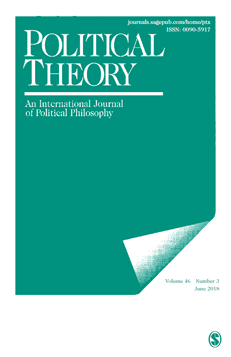 Against Marriage is reviewed by Tamara Metz, author of Untying the Knot, in Political Theory. You can read the full review here. An excerpt follows.
Against Marriage is reviewed by Tamara Metz, author of Untying the Knot, in Political Theory. You can read the full review here. An excerpt follows.“This is a distinct and important contribution to an increasingly crowded field of liberal political philosophy on marriage and the state and, perhaps most interestingly, to our understanding of the liberal project broadly. … Where other liberals seek more vigorously to balance competing demands of freedom and equality, or emphasize freedom, Chambers hews rigorously to an egalitarian position. You won’t find another book that does this so effectively or by way of such productive engagement with existing scholarship. Laying out the egalitarian case in such clear and compelling terms, Chambers highlights the challenges it presents to the liberal side of her liberal feminist equation. In so doing, Against Marriage leaves us wondering just how tenable the liberal feminist project is.”
“Chambers leads us to these questions by bringing us to the edge of the liberal feminist frontier. This alone would make Against Marriage a distinct and important contribution. But, of course, Chambers does more. She offers a compelling vision of why and how to move beyond marriage and points us in the direction of work that needs to be done. All with the grace and graciousness of an analytical philosopher running at full throttle.”
-
Against Marriage on JHIB blog
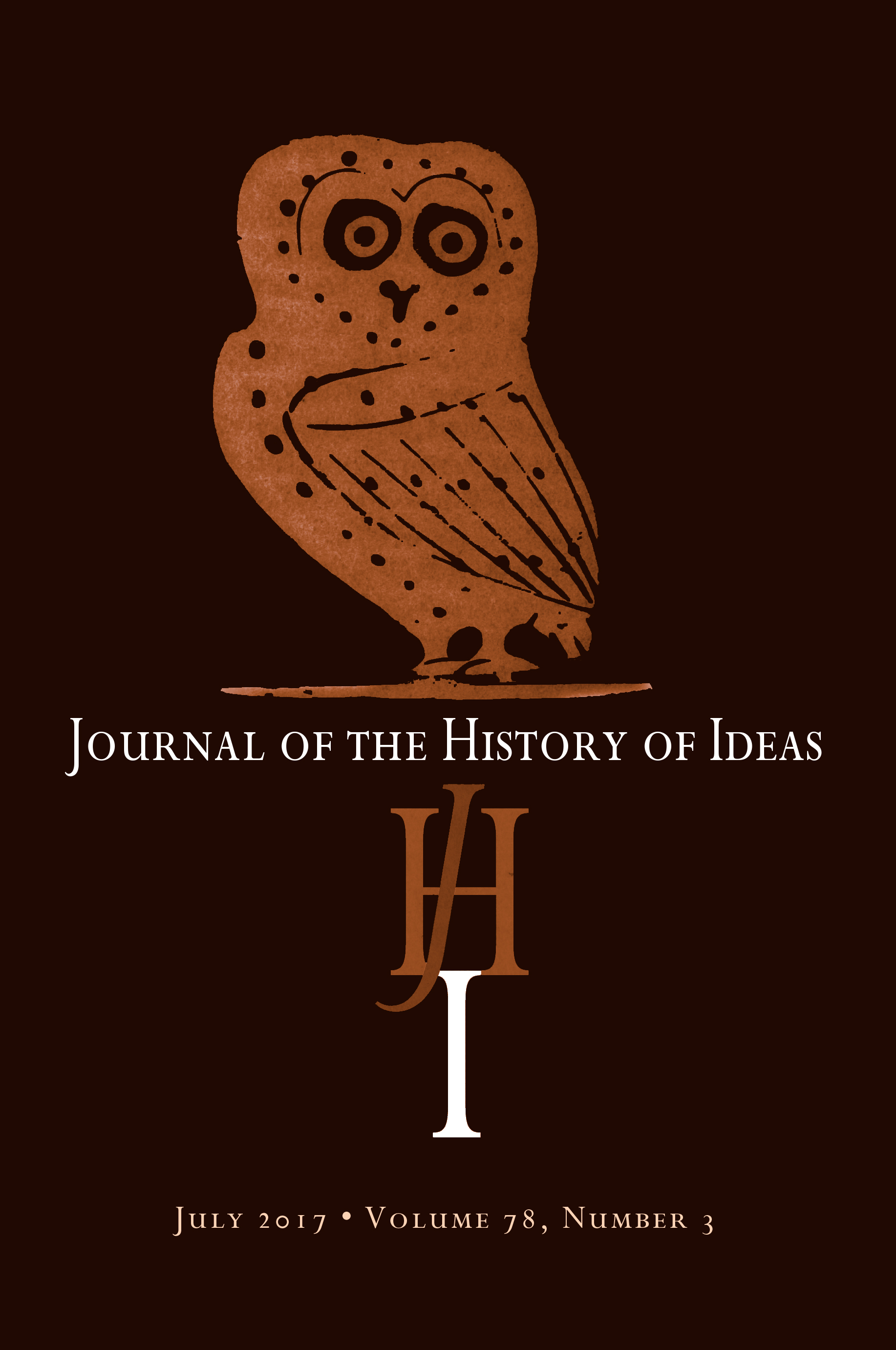 My Aeon article “Against Marriage” was recommended by the Journal for the History of Ideas Blog here.
My Aeon article “Against Marriage” was recommended by the Journal for the History of Ideas Blog here. -
Times of India on Against Marriage
 The Times of India featured my Aeon article “Against Marriage” on 22 April 2018. You can read the coverage here.
The Times of India featured my Aeon article “Against Marriage” on 22 April 2018. You can read the coverage here.
